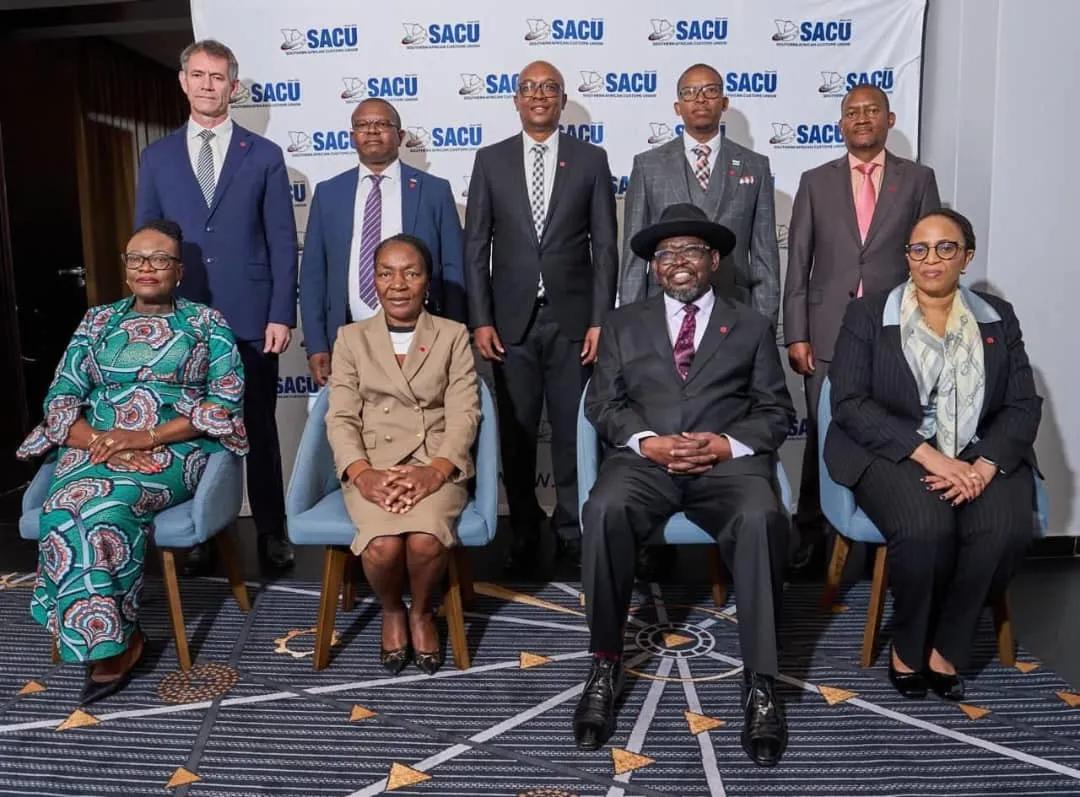Africa-Press – Namibia. THE Southern African Customs Union (SACU) has called on the United States (U.S.) to be more mindful of the needs of Least Developed Countries (LDCs) and those qualifying under the African Growth and Opportunity Act (AGOA) when implementing new tariffs expected to take effect in July.
“SACU wishes to call upon the U.S. to consider observing differential treatment more, especially to consider exempting LDCs and AGOA-eligible countries from these tariff measures,” SACU urged.
This appeal followed the recent SACU Council of Ministers Meeting, held in Johannesburg, South Africa, under the chairmanship of Erica Shafudah, Minister of Finance. The meeting provided a platform for SACU member states to discuss the recent imposition of reciprocal tariffs by the U.S. Government on individual SACU members, the subsequent 90-day suspension granted for negotiations, and to chart a collective course of action moving forward.
“The Member States of the Southern African Customs Union (SACU) have noted with concern the rise in unilateral measures that fragment global trade, including the recent decision by the U.S. Administration to introduce tariffs effective from 9 April 2025, and the implications that this decision has not only for exports to the U.S. but for the entire multilateral trading system. While recognising that the reciprocal tariffs have been paused for 90 days—effective until 9 July 2025—and a universal 10% rate will now apply in the interim, the uncertainty for SACU exports to the U.S. remains. There is therefore a need to address this issue as a matter of urgency,” SACU explained.
The customs union stressed that, given the historical ties between the African continent—particularly SACU member states—and the U.S., the United States is not only a strategic partner but also remains one of SACU’s most significant trading partners.
“The economic relations between SACU and the U.S. have been largely administered through the Most Favoured Nation (MFN) principle; and the African Growth and Opportunity Act (AGOA) and the U.S. Generalised System of Preferences (GSP)—unilateral preferential schemes which provide duty-free treatment to designated beneficiary countries. These unilateral frameworks have contributed significantly to mutually beneficial trade relations that have promoted U.S. investments and intra-industry supply chains between the two sides, fostering economic development, job creation, and industrial growth,” the customs union explained.
According to SACU, the U.S.’s unilateral imposition of tariffs without prior consultation marks a departure from established norms and threatens to undermine global trade and the foundational principles of the multilateral trading system. The union warned that such measures risk reversing the developmental gains achieved through cooperation with the U.S.—gains that have helped lift millions out of poverty in the SACU region and across Africa. Furthermore, SACU cautioned that the tariffs could shift the nature of exports from value-added manufactured goods towards a more extractive model.
SACU member states include Botswana, Lesotho, Namibia, South Africa, and Eswatini.
The Minister of International Relations and Trade, Selma Ashipala-Musavyi, who attended the meeting on behalf of Namibia, assured that SACU member states will continue working together to identify collaborative strategies aimed at minimising disruptions that could result from the U.S.’s proposed tariff increases. Ashipala-Musavyi also confirmed that member countries will continue to assess the impact of current U.S. trade measures on industries, exports, and jobs, while exploring diplomatic channels and trade negotiations to strengthen their position.
For More News And Analysis About Namibia Follow Africa-Press






